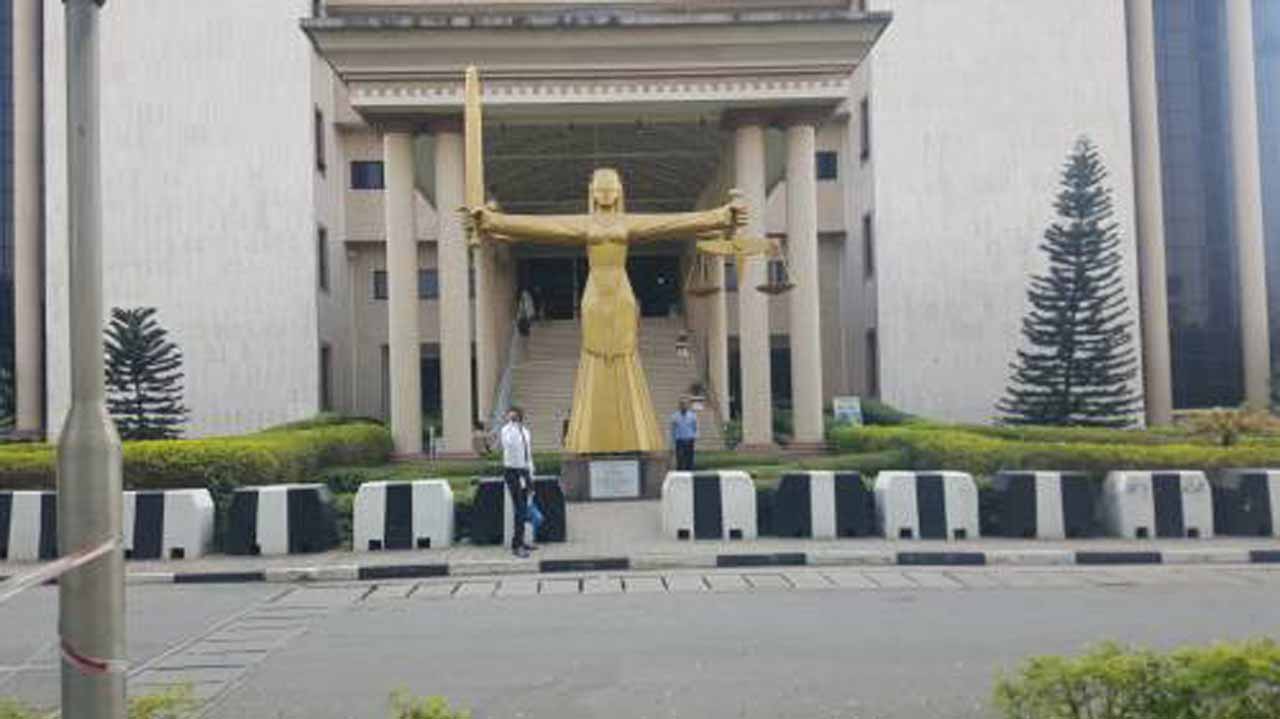Court Clears Ladoja, Commissioner Of N4.7bn Fraud
A Federal High Court in Lagos on Friday dismissed an 11 count charge of conspiracy and N4.7 billion fraud brought against former Governor of Oyo State, Chief Rashidi Ladoja and his Commissioner for Finance, by Economic and Financial Crimes Commission (EFCC).
The trial judge, Justice Mohammed Idris discharged and acquitted Ladoja and Akanbi, saying they are not guilty of the allegations due to the failure of the anti-graft agency to prove its case against them beyond reasonable doubt.
Ladoja and Akanbi, who were first arraigned in 2008 before Justice Ramat Mohammed were re-arraigned for the second time before Justice Mohammed Idris in 2018 on an 11 count amended charge of conspiracy, money laundering, fraud and unlawful conversion.
The accused persons had shortly after they were arraigned before Justice Mohammed, challenged the validity of the charges all the way to the Supreme Court over a period of seven years before the apex court in 2015 dismissed their appeal and sent them back to the high court to face their trial.
They were subsequently re-arraigned on December 14, 2016, before Justice Mohammed Idris at the Federal High Court in Lagos.
They pleaded not guilty to the charge
In his judgment on Friday, Justice Mohammed held that most of the documents which the EFCC tendered in support of its case were lacking in probative value since relevant witnesses were not called to tender them.
The judge also held that the prosecution was inconsistent with the amount of money it claimed that the defendants diverted and laundered.
He stated, “the EFCC failed to call relevant witnesses that could have helped it to prove its case, and the six witnesses it called gave inconsistent and contradictory testimonies.
“The contradictions in the evidence of the prosecution witnesses were not explained by the prosecution during trial. In the absence of such explanations, the court resolved the contradictions in favour of the defendants.
“There is no shadow of evidence linking the defendants to the receipt or use of any fund. None of the defendants were found guilty on any of the 11-counts bordering on the alleged offence.
“There is a thin line between failure and success. Credible evidence is not evidence that is necessarily true but it is evidence that is worthy of believe upon which the court can convict.
“Where a court in a criminal trial thinks there is a less than fifty percent chance that a crime was committed, then the court must return a verdict of not guilty.
“The highest burden of proof before getting to beyond reasonable doubt is of course, clear and convincing evidence. The case of the prosecution is too low on credible evidence.
“For this reason, I agreed with the first defendant that to sustain the charge against him, the prosecution brought six witnesses three of whom are ‘accomplices’ who adduced material evidence for the prosecution.
“The court therefore warned itself of the danger of believing the evidence of these ‘accomplices’. The qualification of proof beyond reasonable doubt is not attainable by the quantity but quality of the evidence.
“Therefore, if the evidence led by the prosecution is strong against the defendants, then the case can be said to have been proved beyond reasonable doubt. However, if the sum total of the evidence led by the prosecution is that the defendant probably committed the offence, then the requisite proof of his guilt beyond reasonable doubt has not been attained.
“An honest believe that the defendant committed the offence as charged is neither synonymous nor can it be substituted by proof beyond reasonable doubt as required by law,” the judge stated.
Justice Idris also described the prosecution of Ladoja and Akanbi as unjust, stating that he found that if anyone was to be prosecuted for the alleged fraud, it should have been the persons whom the EFCC fielded as prosecution witnesses two, three and four.
He further stressed that there was no way government would succeed in its anti-corruption fight, where real offenders were shielded as in Ladoja’s case.
The judge also held, “This country cannot sustain the fight against corruption in the manner in which this case has been prosecuted, where those that should be proper defendants in the case were shielded away from prosecution.
‘’This is injustice and this court will not partake in an injustice.
“Prosecutors must be committed to promoting a justice system founded on fairness, equity, compassion,” the court maintained.
Justice Idris therefore held that as the prosecution failed to prove any of the 11 counts against Ladoja and Akanbi , he was unable to convict them as requested by the EFCC.
In one of the counts, Ladoja and Akanbi were accused of converting a sum of N1,932,940,032.48, belonging to Oyo State Government to their personal own, using a Guaranty Trust Bank account of a company, Heritage Apartments Limited.
The EFCC claimed that they retained the money sometime in 2007, despite their knowledge that it was a proceed of a criminal conduct.
In another instance, Ladoja was accused of removing the sum of £600,000 from the state coffers in 2007 and sent it to Bimpe Ladoja, who was at the time in London.
The ex-governor was also accused of converting the sum of N42m, belonging to the state, to his own and subsequently used it to purchase an armoured Land Cruiser jeep.
He was also accused of converting a sum of N728,600,000 and another N77,850,000 at separate times in 2007 to his own.
The EFCC claimed that Ladoja transferred the N77, 850,000 to one Bistrum Investments, which he nominated to help him purchase a property named Quarter 361, Ibadan, Oyo State.
The EFCC told the court that Ladoja and Akanbi acted contrary to sections 17(a) and18 (1) of the Money Laundering (Prohibition) Act, 2004 and were liable to be punished under sections 14(1), 16(a) (b) and 18(2) of the same Act.




